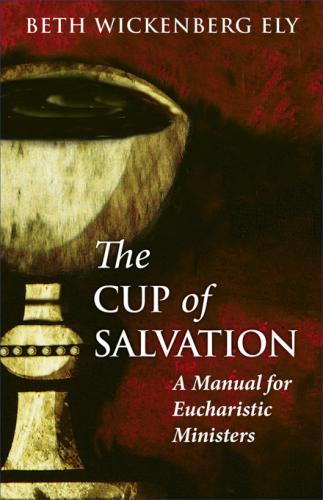Low Church congregations come out of a distinctly Protestant Evangelical orientation. In fact, except for the cadences of The Book of Common Prayer, a worshipper might think he is in a United Methodist Church. (After all, members of the Wesley family were devoted members of the Church of England!) These parishes often are plain inside, they do not usually reserve the sacrament, and their liturgies are less formal. They might be more inclined to have what we call today “contemporary services.” The music might include many hymns from the renewal movement.
But all these churches—High, Broad, and Low—are Episcopalian! Pick the style that speaks to your heart. This is one of the great things about being a part of The Episcopal Church! By no means are we cookie-cutter congregations.
Episcopalians believe that the bread and wine become the body and blood of Christ. Theologians have debated for centuries just how that happens and what it means.
The Episcopal Church’s official position on this is called the Doctrine of the Real Presence. The following definition is by Thomas Aquinas: “The whole Christ is present under every part or quantity of each species. As a loaf of bread is bread, and a slice of bread is bread, and a crumb of bread is bread, so, the Eucharistic species, in whatever quantity, is Christ.”10
Each crumb of bread contains the whole of Christ, like each piece of a fractal pattern contains the whole of the pattern, no matter how small.
St. Cyril cautions:
… for whatever thou losest, is evidently a loss to thee as it were from one of thine own members. For tell me, if any one gave thee grains of gold, wouldest thou not hold them with all carefulness, being on thy guard against losing any of them, and suffering loss? Wilt thou not then much more carefully keep watch, that not a crumb fall from thee of what is more precious than gold and precious stones?11
Thus, we treat the consecrated bread and wine as we would Christ himself: with reverence for his holiness. This means many Episcopal clergy and laity believe that crumbs from the bread are considered to be the body, and like the entire wafer, not to be scattered or stepped on but quickly retrieved if they are dropped. Anglo-Catholic clergy are particularly aware of this. One of the reasons it is difficult to serve loaf bread is that it has a lot more crumbs than wafers. The same care is taken with wine that spills.
WHY I LIKE COMMUNION WAFERS …
1. Do not have to be chewed
2. Few if any crumbs
3. Easier to count when setting up for eucharist
4. Easier to estimate how many if I don’t count them
5. Never distribute too big a piece for someone to swallow
6. Easier to consume if I over count
7. Can usually consume extras without wine
8. Don’t usually have to break them as I distribute them
9. If we have the right kind, those with celiac disease can receive them
10. Fit better on a paten
11. Easier to pick up from the paten
12. More sanitary
13. Easier to pick up off the floor if dropped
14. Easier to fish out of a chalice if dropped in it
15. Communion doesn’t take as long
16. Don’t spoil when reserved in aumbry or tabernacle
Oh yes, Episcopalians differ in their theology, usually as a part of their “churchpersonship.” Our ability to include people of such widely divergent views has long been the strength of Anglicanism.
WHY I DON’T LIKE COMMUNION WAFERS …
1. Don’t taste as good as loaf bread
2. Probably weren’t used at the Last Supper
3. Probably not made by someone I know who has prayed over it as she kneaded and baked it and gave it as a gift for our eucharist
4. Slide off of a flat paten
5. Blow off a flat paten when I walk with it
6. Hard to pick up off the paten with long fingernails
7. All the monks’ good recipes are for altar bread
8. Don’t remotely look like real bread, which puzzles children when we say “The Bread of Christ”
Anglicans’ Doctrine of the Real Presence acknowledges a change in the elements of communion though not a belief that Christ is present materially. Thus the doctrine is broad enough to encompass a variety of other ways of looking at what happens when the bread and wine are consecrated.
Episcopal churches worship according to their eucharistic theologies. For example, the theology of Anglo-Catholic churches is closest to that of the Roman Catholic Church, which holds to the doctrine of transubstantiation, a form of the Doctrine of the Real Presence. Transubstantiation maintains that God converts the bread and wine into the body and blood during the Prayer of Consecration, though their material substance is not changed.
Low churches often have a more Protestant understanding and reject any notion that the body and blood changes into the bread and the wine. Instead they focus on the spiritual presence of Christ in the elements that can only be received by the faithful, agreeing with the ideas developed by Jeremy Taylor, a seventeenth-century Anglican bishop that it may not be about a change of substance, but it is about a substantial change.12
Incarnational theology is especially important to Broad Church Episcopalians, who treasure the truth that the eternal Christ makes himself known through very earthly elements—bread and wine. They often embrace the question of how Christ is present in the eucharist as a deep mystery.
“He was the Word that spake it;
He took the bread and brake it;
And what that Word did make it;
I do believe and take it.” 13
